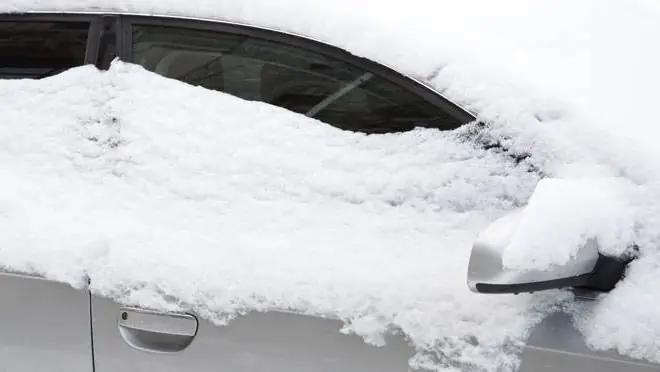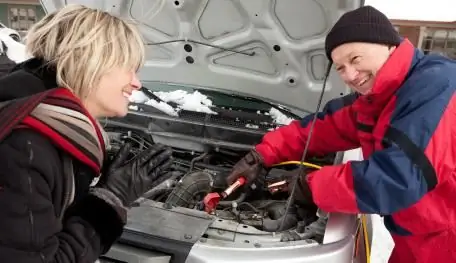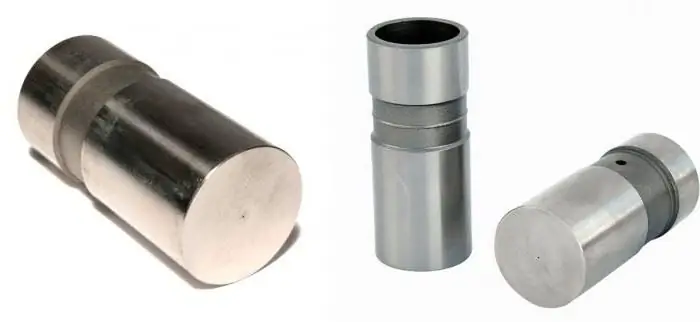2026 Author: Erin Ralphs | [email protected]. Last modified: 2025-01-22 21:14:16
Every motorist, when operating a vehicle, will certainly listen to how his car works. The appearance of extraneous noise in the operation of the engine, as a rule, does not bring joy to the owner. The presence of the slightest malfunction requires an urgent diagnosis and elimination of the problem. During operation, the engine generates heat, and when it is exposed to the metal, the latter begins to expand. As a result, large gaps form on some parts, which just lead to the appearance of extraneous noise. One of the problems can be knocking hydraulic lifters, which independently adjust the desired gap. In this article, we will approach a broad explanation of the topic. What are hydraulic lifters (their device, purpose), why they knock at different engine operating modes - read about all this below.
What is this?
This element is a piston, which automatically adjusts the thermal gaps. The principle of operation of thisdevice is quite simple. The bottom of the piston interacts with the camshaft cam.

A ball valve is installed in the piston, with the help of which the damper opens and oil begins to flow. When the piston is filled with oil, pressure will be applied to the existing plunger, causing the piston to move all the way to the cam. As a result, the most optimal gap is automatically set. When the cam acts on the piston through the valve, part of the oil escapes.

The piston goes down a little, thus creating a gap. The latter on the hydraulic compressor is regulated by the flow of incoming oil. At this stage, we have learned what hydraulic lifters (their devices) are.
Why are they knocking
It's easy enough to hear. The knock of hydraulic lifters on a cold engine or a hot one begins to manifest itself directly during engine operation and has a direct impact on the stability of its operation.
The reasons why the element knocks "hot" are as follows:
- The oil pump failed. The system is not pressurized.
- The hydraulic compensator hydraulics are broken, that is, the system does not have the required amount of oil or, conversely, there is an excess of it.
- The seating area of the part has increased significantly due to the heating of the engine, during which the metals expand.
These causes of malfunction are typical only for a warm engine. It is worth noting,that the sound of these elements on a hot engine is quite rare.

Most often, the hydraulic compensator knocks "on the cold", while for both modes the sound may appear due to the poor quality of the oil. It also occurs due to a contaminated lubricating fluid cleaning system.
The sound of hydraulic lifters on a cold engine
There are many more reasons why the part knocks on a cold engine than on a hot one. It is not always possible to determine the source of the "clatter" of hydraulic lifters. Therefore, in some situations, it is advisable to seek help from a specialized station.
The main reasons why hydraulic lifters knock on a cold engine:
- Production on the plunger.
- Heavy contamination of engine oil due to violation of the timing of the change. Note: when the engine warms up with this cause, the knock will disappear, as a new batch of oil supplied to the part will wash out the exhaust.
- Formation of bubbles, which adversely affects the compressibility of the lubricant.
- Failure or uneven operation of the ball valve.
- Using poor quality oil.
- Using high viscosity grease. As a result, no oil enters the parts at all until the engine warms up.
- Filter element dirty.
Now we know perfectly well the main reasons why the hydraulic compensator knocks “on the cold”. It is worth noting that several units cannot knock at the same time, asAs a rule, only one sounds. To find out which one has become unusable, it is necessary to make a diagnosis.
How to find out the faulty element
Having de alt with the causes of a possible malfunction in the engine, you need to consider how to determine the faulty part. In specialized workshops, a knocking hydraulic compensator is identified using acoustic diagnostics.

In addition, a knocking hydraulic compensator can be identified on a disassembled engine. To do this, remove the valve cover and push through each of the elements. Elements that drown easily will be faulty, since the least pressure prevails in them. The most important thing in diagnosing a malfunction is the lack of influence of the camshaft cam on the units. It is impossible to determine the defective element by other methods.
What to do when the element knocks
Most drivers are concerned about one question: when the hydraulic lifter knocks, what should I do? Since most problems with knocking are directly related to poor oil quality or interruptions in the operation of the lubrication system, it is necessary to change the oil and the engine filter element. In addition, the system channels should be flushed to remove the existing operating time.
Oil selection
In such a situation, many will think about what kind of oil to pour with knocking hydraulic lifters. The answer is quite simple: it is necessary to fill in the lubricant of the desired viscosity, which is recommended for use by the factory.manufacturer. Currently, in the summer, it is most popular to use semi-synthetics on cars, that is, 10W-40. In winter, pour 5W-40.

After changing the oil and filter, you should not be sure that there will be no sound. Quite the contrary: the knock of the hydraulic compensators “on the cold” will also be heard due to the fact that there is no lubricant left in the pistons after draining. However, after the engine warms up, it should disappear, thereby confirming the correctness of the replacement decision.
Flushing
Not always the use of new oil will help to remove the knock. This has to do with how badly the fault was triggered. In this case, it is necessary to determine the defective element and dismantle it for subsequent washing in gasoline. Often, due to the use of bad oil, the compensator is gradually contaminated. The removed compensators are mounted back into place in the order in which they were dismantled. It is worth noting that washing the elements is a rather complicated process that will require special skills from the car owner.
Knock can be eliminated in the following way:
- Crank the crankshaft until the valve corresponding to the faulty element opens.
- Then you need to turn the valve at an angle to restore the correct installation of the part.
- After that, you should start the engine and check for sound.
This method is applicable if the car "Grant" knockhydraulic compensators "for cold". If the cause persists and the sound is still present, a complete replacement of the part is required.

At the same time, it is worth remembering that due to the design of modern cars of domestic production, all models of the latest generations have a short-term knock of hydraulic lifters when starting the engine. There is nothing to worry about, and it is not always possible to eliminate such a malfunction even as a result of repair in a specialized center or after a complete replacement of the part.
Installing a new part
It is produced if the sound has not disappeared after the new oil. Car owners do not dare to experiment with flushing. You can replace the compensator with your own hands, and the process is identical for all car models. The only difference in specific models is the need to replace the valve cover gasket due to engine design.
Consider the process of replacing expansion joints:
- Remove the valve cover.
- Remove the sprocket from the camshaft.
- Check damper and tensioner for wear.
- Make the bed.
- Lay out the pushers strictly in the order of extraction.
- Get the expansion joints and put them in order.
- The lubrication system and hydraulic lifter seats are being cleaned.
- Install new elements carefully in place, while screwing in should be done with a torque wrench to control the applied force.
- Remaining parts installed in reverse order.
Result of ignoring repair
If the driver heard that the hydraulic compensator was knocking "cold", but still ignored the repair, the consequences may not be the most pleasant, despite the fact that the compensators do not have much effect on the wear of other engine components.

As a result of untimely repairs, problems with the engine lubrication system may occur. In addition, signs of serious problems will be a decrease in the overall power of the power unit, as well as a drop in the acceleration rate of the car and an increase in fuel consumption when driving at medium parameters.
So, we found out why the hydraulic compensator knocks "cold".
Recommended:
Flushing hydraulic lifters: procedure. Knock of hydraulic lifters on cold

Do-it-yourself car repair in most cases allows not only to save a lot, but also to prevent serious malfunctions in a timely manner. In vehicles equipped with 16-valve cylinder heads, hydraulic lifters may knock. It is possible to correct the situation. Flushing hydraulic lifters will help. Let's see how it's done
Starting the engine in the cold. Starting an injection engine in cold weather

The article describes how to start the engine in cold weather. Considered injection and carburetor engines with specific examples and recommendations
Hydraulic compensator - what is it? Knock of hydraulic lifters: causes, repair

Modern cars are equipped with a device such as a hydraulic compensator. What is this node? How does he work? All this and more - further in our article
Hydraulic lifters knock on cold: we establish the reasons

Experienced car owners who carefully monitor the condition of their car, constantly listen to various noises that sometimes occur during the operation of the car. Hearing the noise, they immediately try to find the cause and eliminate it. Many knock hydraulic lifters on the cold. Let's try to figure it out and find out how to eliminate such a knock
How to start a diesel engine in cold weather? Diesel additives in cold weather

It's winter outside, and all motorists in our country are solving the problems that this beautiful time of the year presents them. For example, diesel does not start in cold weather. In addition, you need to choose and change tires, think about which wiper to fill in, where to wash the car, etc. In today's review, we will talk about diesel engines and discuss one of the most important questions: "How to start a diesel engine in cold weather?"

